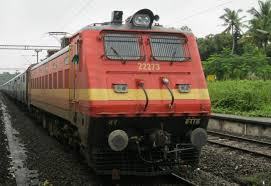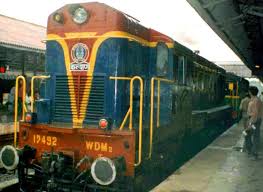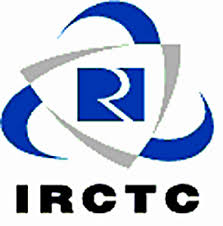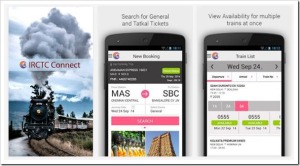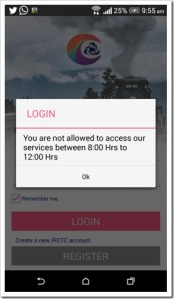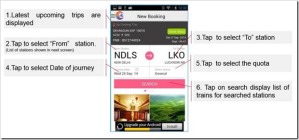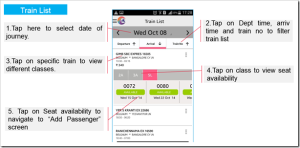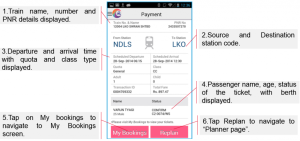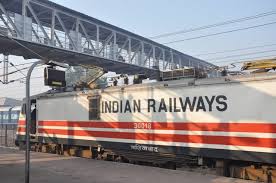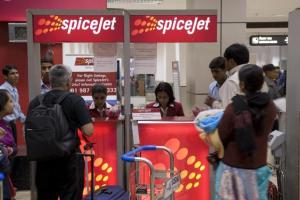Thank You for choosing PGI and we appreciate your business with PGI 10000 Retailers & Counting, we appreciate your business with PGI
PGI
Payment Gateway of India
Category Archives: Uncategorized
Add cash to your Paytm Wallet

We’re thrilled to be the official wallet creation and top up partner for Paytm, wherein our PGI outlets is available for you as a top up point for Paytm wallet We are excited to think about the combination of PGI 10000retail outlet across India and the Paytm Wallet’s reach – 60 million trusted wallet users across India – and the opportunity for you to enjoy this brand new integration! Go top up your Paytm wallet at PGI retail outlets shop, pay bills and more!!!
Railway Tatkal Booking Timings Changed
The timings for booking Tatkal tickets in AC and non-AC classes have been changed with effect from June 15 as the Railways has staggered the schedule to reduce the load on the ticketing website and booking windows. Now, under the revised timings, for AC classes, the reservation under Tatkal scheme will open at 10 a.m. on the previous day of journey from train originating station. For non-AC classes, it will start at 11 a.m.
At present, the booking under Tatkal scheme opens at 10:00 a.m. for all classes on the previous day of journey from train origination station.
The change has been effected to facilitate hassle-free booking by reducing the load on the server. In another change, all types of ticketing agents, including IRCTC agents, will now be debarred from booking tickets for 30 minutes from the opening of bookings – from 8 a.m. to 8.30 a.m. for general bookings, from 10 a.m. to 10.30 a.m. for Tatkal AC classes, and from 11 a.m. to 11.30 a.m. for Tatkal non-AC classes The Railways is also planning to refund a percentage of fare on cancellation of confirmed Tatkal tickets. At present, no such facility is available. Become an authorized IRCTC online rail ticket booking agency #pgi
IRCTC terms you never knew
Travelling in the today’s world has become the new necessity for some whereas the the new passion for others but it seems like everyone is travelling. And in India, where the essence of travelling is found in railway journeys, it is unlikely that one hasn’t travelled through trains. In fact, for some, it is the most preferred mode of transportation. So it is obvious that there are crores of people, who go through the train booking, waiting for confirmation and finally getting a confirmed ticket phase.
If you have been one of them, have you ever wondered what the status of your ticket means? We all know what WL and CNF means but the rest like RLWL, CKWL, RAC etc still seems like railway jargons to us and we just cross our fingers and hope that by the date of the journey, it will turn into CNF. So for the next time you book a train ticket, do not be perplexed and know exactly what your booking status means. We simplify these railway jargons for you here:
WL (Waiting List) – We all have faced this evil one, and wondered what to do. If your train ticket says, for example, GNWL 6/ WL 5 then it means your train ticket is waitlisted at number 5 and your booking will only be confirmed if 5 passengers who have booked their tickets before you, cancel their train journey. Also, after a certain period, if your status is GNWL/ Available, it means that your ticket is confirmed as some passengers before you cancelled their tickets. There are various types of waiting list tickets such as:
1.GNWL- General Waiting list is the most common type of waiting list ticket issued to the passengers who are travelling from the originating station or stations close to the originating station. You are very likely to confirm your tickets with this type of waiting list.
2.CKWL- If you book your train ticket through tatkal, the waiting list issued is CKWL. The GNWL is preferred over CKWL so the chances of confirmation are not extremely high for this. A talkal train ticket is either cancelled or confirmed and does not go through RAC like GNWL.
3.RLWL- Remote location Waiting list is issued when the booking is for intermediate stations. So if your journey lies between the originating and terminating stations, you will receive a remote location waiting list ticket. The chances of ticket confirmation for RLWL are low because these tickets have a separate priority than GNWL and are based on specific cancellations.
4.PQWL- A pooled quota waiting list ticket is issued for small stations. This list is shared by many small stations and is issued if you are travelling only a part of the entire train journey.
5.RLGN- When you book the RLWL ticket, the issued ticket will show the remote location general waiting list (RLGN) status.
6.RSWL- If you are travelling from the originating station to a roadside station, you are likely to be issued this ticket. Roadside station waiting list does not have a very high chance of confirmation.
7.RQWL- Request waiting list tickets are issued if you are travelling from one intermediate station to another and it is not covered by any of the former types of waiting list.
RAC- Reservation against cancellation is like purgatory. You do not have a confirmed train berth or seat but you aren’t on waiting list either. In this type of a ticket, two passengers are issued one seat and the confirmation depends on the cancellation of one of the passengers. You can always travel with RAC without regard to confirmation as you still are allotted a seat or berth but it could turn into a slightly uncomfortable journey.
CNF- This is what we call every Indian traveller’s dream status. A confirmed ticket is difficult to get unless you book ages ago which does not usually happen. So you have the full berth to yourself and no worries.
Become an authorized IRCTC online rail ticket booking agency and provide Indian Railways e-Tickets to your customers Real-time access, Hassle free Bookings & Cancellations Register now
We hope you now understand your journey a little better than before and we are always here to help with you queries and difficulties regarding train bookings.
IRCTC Connect: Official Android App Finally Launched By Indian Railways
Indian Railways has finally launched their official Android application: IRCTC Connect on Google Playstore. Users can use their existing login details to access this app, and book tickets, enquire about availability of berths and perform all the activities which can be performed on their website.
Earlier, IRCTC had launched an application only for Blackberry platform. Now with Android covered as well, more users would be able to access Indian Railways, on the move.
With more than 170 million mobile internet users in India, a number which is increasing at fast rate, Indian Railways has done the most sensible thing to help users connect with IRCTC seamlessly. Earlier, in the month of August, Indian Rail has upgraded their e-ticketing platform to accommodate 7200 ticket bookings every minute along with a capacity of 1.2 lakh users at any given moment.
IRCTC has banned the usage of this application between 8.00 AM to 12.00 PM, a step which has been taken to reduce the load on mobile platform during the morning rush hours. Additionally, as this time period is used extensively to book Tatkal tickets, the decision seems right as everyone will get a fair chance to attempt Tatkal tickets.
Users can easily navigate this app, as the designers have followed the best practices of UX while designing this app; meanwhile complete care has been take to choose the right color combination to come up with nicely designed interface.
IRCTC is also providing a detailed user-guide which explains every screen process in depth. For example, here is how users can enquire about a particular train and book tickets:
Users can view all the major information about a train route, as the applications summarizes the details optimally in one screen. For example, train list:
The process to book tickets, and add the person’s name and other details are easy as well. Just like in the website, passengers can opt for various payment options while making the booking. This is how the confirmed ticket appears once booked via this app:
Within few hours of its launch, IRCTC Connect has attracted thousands of downloads, with 750+ reviews as the time of writing. Average rating is 4.3/5, which is excellent to say the least. Become an authorized IRCTC online rail ticket booking agency.
There are some complains mentioned in the reviews such as lack of synchronization between the website account and mobile app account; provision to change password, creation of profile etc.
Railways doubles `Tatkal’ fares under `dynamic pricing’
Indian Railways has entered the realm of private tour operators with a demand-based dynamic fare pricing system, under which premium `Tatkal’ tickets could cost passengers double the normal Tatkal fare. Under the scheme, introduced from 1 October, the Railways will sell half of the Tatkal quota tickets on select high-density routes through the ‘Premium Tatkal Scheme’. More the demand, higher the price, that is the new rule for pricing such premium tickets. These premium tickets can be booked only online through the web site `irctc.co.in’ and the Indian Railway Catering and Tourism Corporation (IRCTC), the ticketing and catering window of Indian Railways, said the fare would vary according to slabs. ”For instance, the first 20 per cent of the premium Tatkal tickets would have one fare, the next slab would have a higher fare and so on,” according to IRCTC. The minimum premium fare is the basic train fare plus the `Tatkal’ charges, which vary from 10 per cent to 30 per cent with an upper limit depending on the class of travel. The maximum premium is up to 30 per cent of the base fare or Rs400 (whichever is higher). The new scheme has made Tatkal tickets more expensive on 80 popular trains. While this may fetch the Railways more revenue, it will also burn holes in the pockets of train travellers, who just missed the chance to book his ticket in advance or has to go on an urgent call. The new pricing plan was introduced on trains that had heavy rush during the festival season, which will continue for some time now. Exact details on the fare structure would be available after the Railway Board makes a final decision and the programme is fed into the computer system, sources said.
Become an authorized IRCTC online rail ticket booking agency http://bit.ly/1vHh6B4 #pgi #railticket #jobcreator
Buying an air ticket for Rs999? Here’s what you need to know
What triggers a flash sale?
Airline seats are the ultimate perishable commodity: once the aircraft departs, the empty seat’s revenue is lost forever; the seat cannot be put into inventory, like a bar of soap, for example, to sell another day. An airline cannot easily change the size of the aircraft (its production unit) based on demand. Switching off the production line for airlines essentially means cancelling flights for commercial reasons, which is not a good practice. Therefore, airlines are constrained in what they can do to manage capacity and match it to demand. This prompts the creation of complex revenue and inventory management systems, and the use of tools such as flash sales. These ensure fewer units produced in a fixed production line go unsold.
Are flash sales offered to generate working capital for airlines?
Perhaps, but not always. Stimulating fares are an international practice. There is, of course, a school of thought that airlines, like any other industry, are selling products (tickets) to generate revenues, which are then used to pay bills. “When budget airlines abroad do it… it is okay, but it’s not okay if a low-fare airline brings this approach to India? Regardless of the cost position in India (which is high), these advance purchase sales generate incremental revenues, therefore are a positive and help defray more of the costs,” said an executive from a low-fare airline who did not want to be identified. That said, flash sales by some of India’s cash-strapped airlines seem driven by a desire to raise working capital.
How does a flash sale work?
Flash sales essentially work to stimulate demand and fill seats that might otherwise go empty and be lost forever. Even in a peak season, airlines fly with 10-20% of their seats empty. Simply lowering fares across the board to fill seats is not the answer, as this would reduce revenue per aircraft and for every seat in the aircraft. Flash sales are decided by aircraft capacity and structured to minimize dilution of revenue for seats that could be sold later at a higher price to less price-sensitive customers. The goal is to sell excess seats at a marginal cost, without reducing the demand for, and fare received, on the remaining seats that would sell later, anyway. Properly done, these sales increase revenue per aircraft and revenue per available seat-km (RASK), which is also an indicator of the airline’s profitability. It is a simple application of the economic theory of customer segmentation through price discrimination. These schemes are highly restrictive and, therefore, not attractive to those who value flexibility. But they are designed to be attractive to those who may not have made that booking otherwise.
Do flash sales work?
If managed efficiently without revenue dilution, these stimulation techniques actually increase revenue. Before such techniques were perfected, airlines used to sell discounted tickets without proper inventory control, advance purchase requirements or restrictions, making them counter-productive and diluting revenues. But if the inventory is controlled, flash sales not only sell the discounted tickets on offer, but also increase the sale of tickets which are not discounted. For example, if discounted tickets sell out in one direction of a two-way trip, the customer typically buys one leg at the regular fare and the other at the discounted fare. The customer also buys in-flight meals and goods, adding to revenue. So, flash sales help sell more than just the discounted tickets. “Airlines have always looked to increase the advance purchase sales and make the booking curve healthier towards the end. The recent flash sales have shown a 65% surge in advance purchase bookings,” says Samyukth Sridharan, chief operating officer at Cleartrip Pvt. Ltd, an online travel agent. In other words, there is no cut-throat competition among airlines.
Any other benefits?
Free advertising! Newspapers, television channels and social media lap up news about flash sales. The free advertising impact of such sales is huge. For low-fare airlines worldwide, such sales are excellent marketing. It gets more people to visit the airline’s website and possibly buy tickets. “Another interesting angle is the advent of new bookers, and again reiterates the huge opportunities that exist to get people to experience the air travel experience,” Sridharan of Cleartrip says. His firm saw over 24% of new customers making their first purchase during these flash sales. “Stimulating advance purchase works on various grounds. Firstly, the opportunity to tap the large leisure segment of customers, which is a strategically important customer segment for airlines. Secondly, it helps airlines get predictable loads on their flights well in advance,” Sridharan adds.
Do flash sales push up regular fares?
A typical airline ticket in India is sold below cost. RASK in India is among the lowest in the world. According to airline executives, fares closer to the date of travel, especially within seven days of travel, are almost absurdly low. An almost two-hour flight at the last minute, say Mumbai-Delhi, costs less than $200 one-way in India. It would be much higher anywhere else in the world, sometimes by up to three or four times. Customers who book at the last minute tend to be less price-sensitive and do not mind paying more, to an extent. Airlines generally do not stimulate demand for those willing to book early and willing to accept restrictions in exchange for lower fares. On the other hand, they may not have done enough to leverage customers who do not mind paying more for last- minute availability, flexibility, and convenience. So, yes, fares may go up for last-minute bookings.
Why only low-fare airlines and not full-service airlines?
There are two different business models at play—full-service airlines and low-fare airlines—and a “one-size-fits-all” approach does not work. They need different pricing strategies. Full-service airlines want to keep more inventory available for higher-value last-minute sales, which is their core: corporate travel. Budget airlines sell less at the last minute; so, they do not want excess inventory left over. Discounting at the last minute is the worst thing an airline, regardless of the business model, can do as it just leaves money at the table and benefits those who would have paid more any way. In general, budget airlines all over the world want to get rid of excess inventory early. In India, budget airline executives allege that full-service airlines constantly discount and undercut others at the last minute, the opposite of what they should be doing. This, they say, damages both, as there is no need to discount like this at the last minute when customers are least price sensitive. Interestingly, India’s full-service airlines have followed flash sales by low-cost airlines with price-led promotional offers of their own.
Which are the craziest flash sales?
Several budget airlines, including AirAsia, have given millions of seats away for free. SpiceJet had a Rs.1 sale. These may appear crazy, but there is a method in the madness. Even under such schemes, the whole aircraft is not discounted. Airlines selectively sell seats which, in their calculation, would otherwise go empty. Those who book early get the cheapest tickets. Others get tickets too, but not at the flash-sale price. For an airline, what is crazy, though, is selling deeply discounted tickets at the last minute during peak season.
How are current flash sales different from those in the past?
Full-service airline executives claim budget airlines conduct fire sales to get working capital and that they are no different from the past. But the flash-sellers differ. An executive from another low-fare airline said, “I believe they (flash sales) are better planned and fenced now. Let me tell you what I find curious. On the one hand, airlines in India are accused of being a cartel. But when an airline does something different in terms of pricing, the same people say it is ruining things for other airlines, and question you if other airlines do not follow.” What is required, cartels or free competition, he asks. “Same pricing across all airlines, or airlines that actually price differently based on their business models and strategies?”
Can we expect more flash sales?
Of course. With increased competition, passengers can expect more such sales. Travel agents confirm that passengers are seeing savings of an average 30-40%. In some cases, flash sales have resulted in savings as high as 75%. Flash sales are an ongoing activity for budget airlines. Besides, AirAsia India has started flying and Tata-SIA will follow. More offers are on the way.

